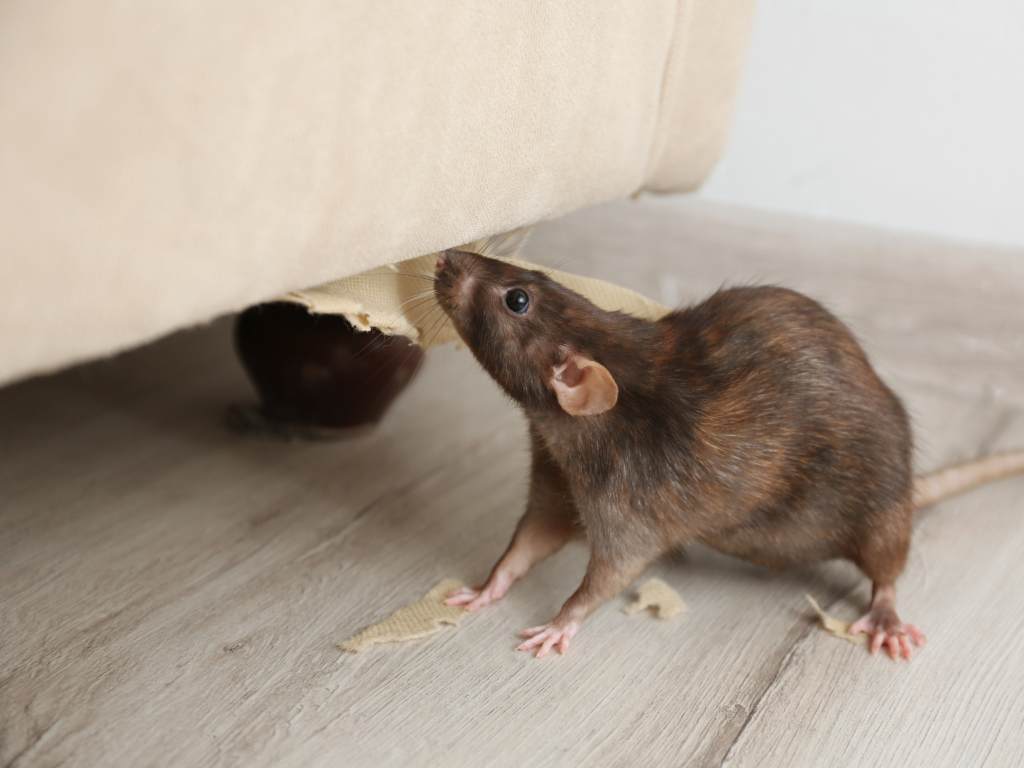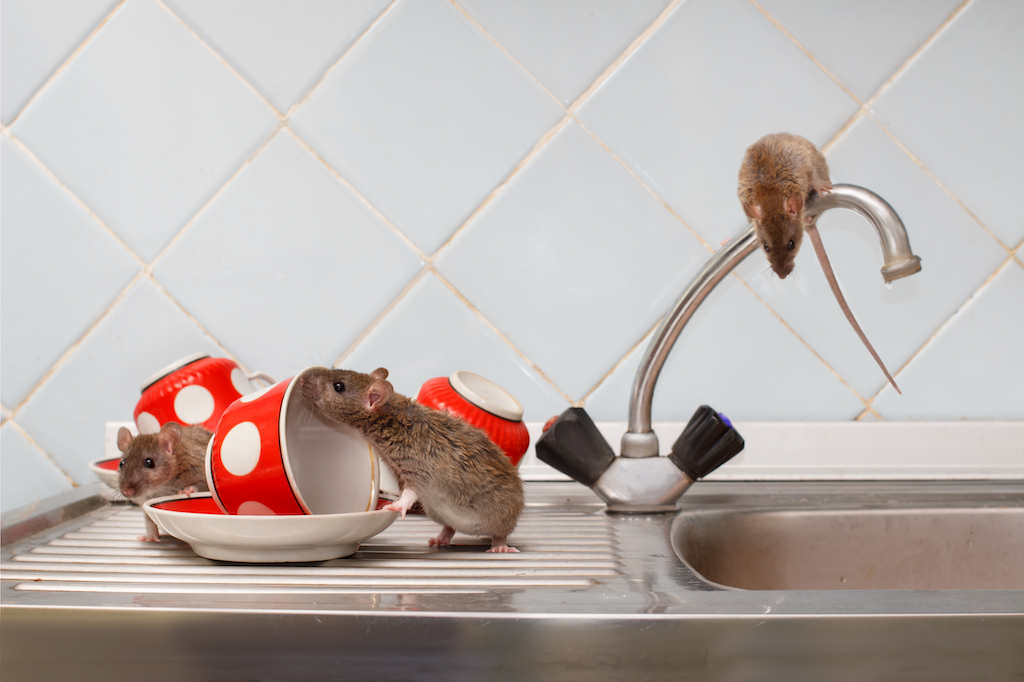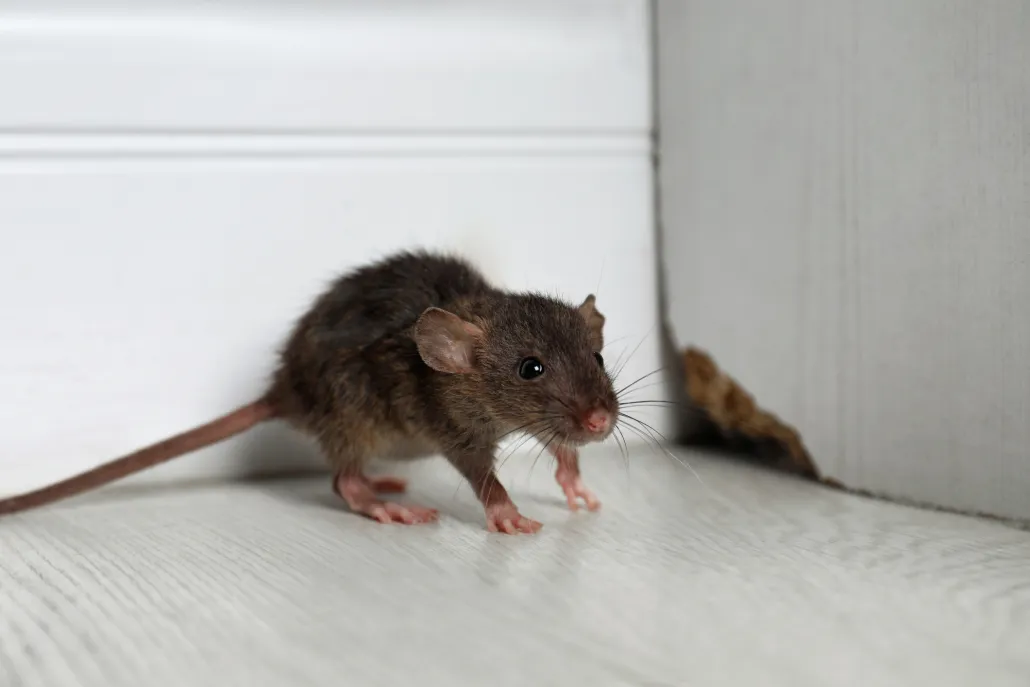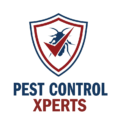Florida’s warm, subtropical climate is a major draw for tourists and new residents alike. Yet the same conditions that favor a relaxed, year-round outdoor lifestyle also provide an ideal environment for rodents. Rats and mice, in particular, flourish in places with abundant food sources, mild winters, and plenty of hiding spots—conditions that exist throughout much of the state. For property owners in Apopka, as well as in neighboring communities like Plymouth and Zellwood, a reliable approach to rodent removal can keep these unwelcome intruders from creating structural damage, health hazards, and constant anxiety.
This page covers key insights into why rodents are prevalent in Florida, how to detect and address infestations, and the critical role a professional rodent exterminator can play in securing your home or business. By combining thorough inspections, safe trapping or baiting methods, and ongoing prevention measures, you can reduce the risks posed by rats, mice, and other rodents that see your property as an ideal nesting site.
Florida’s Environment and Rodent Activity

- Mild Winters
Unlike colder regions, Florida has no prolonged frost or snow season that significantly weakens rodent populations. When average temperatures remain moderate, rats and mice remain active, continually seeking food, water, and nesting opportunities. In states with harsh winters, rodent reproduction slows down considerably, but in Florida, breeding cycles often remain near-constant year-round. - Frequent Rainfall and High Humidity
Florida’s rainy spells encourage lush vegetation to grow, providing shelter and foraging zones for rodents. Rats and mice can feed on fruits, seeds, insects, or outdoor refuse before slipping indoors through tiny openings. Once inside, they find air-conditioned spaces particularly comfortable if water sources like leaky pipes, damp basements, or condensation from air conditioning units are present. - Suburban Growth and Construction
Towns and cities such as Apopka continue to expand, with new neighborhoods popping up and older structures undergoing renovation. Construction disturbs traditional nesting spots, nudging rodents to relocate into houses, garages, or commercial buildings if they sense easy entry and consistent meals. Crevices in foundations or gaps around utility lines can offer easy highways for rodents to travel between the outdoors and your interior walls. - Year-Round Food Supplies
In Florida, fruit trees, landscaped gardens, and open trash bins give rodents a stable food source. Indoors, unsealed pantry goods, leftover pet food, or crumbs under kitchen appliances become enticing feasts. If the environment stays consistently warm, rodents see no need to migrate or slow their breeding cycles, allowing them to establish robust populations if not addressed. - Minimal Seasonal Dormancy
In many states, below-freezing winters naturally lessen rodent activity for several months. Florida’s mild climate eliminates that downtime, enabling rodents to reproduce rapidly. Small infestations can turn into extensive problems within weeks if homeowners do not intervene.
Common Rodents in Florida
- Rats (Roof Rats, Norway Rats)
Roof rats, also known as fruit rats, frequently climb trees or utility lines to access upper levels of buildings, entering through damaged vents or loose shingles. They prefer elevated nesting sites, such as attics, and enjoy fruit trees, palm fronds, and yard debris. Norway rats, by contrast, generally nest at ground level or below, digging burrows outside or hiding in lower floors. Both types can quickly adapt to indoor life if they find enough sustenance. - Mice (House Mice, Field Mice)
Smaller than rats, mice can squeeze through dime-sized openings. They often inhabit kitchens, pantries, or storage rooms, chewing through thin plastic or cardboard to access cereals, grains, or snacks. While many Florida homeowners first notice signs of mice through droppings or chewed materials, these rodents can easily go undetected until populations become substantial. - Squirrels (Occasionally as Indoor Invaders)
Though less common as full-time indoor pests, squirrels may break into attics or crawl spaces, especially if they find a weak spot along a roofline. While not typically grouped with rats and mice, squirrels are indeed rodents. If they nest inside, damage to insulation, electrical wiring, or wooden beams can result. - Other Rodents
Various rodent species beyond rats and mice exist in Florida, though property owners most often report issues with these two main categories. Regardless of the specific rodent type, the presence of droppings, gnaw marks, or nesting debris demands immediate attention to avoid health risks or property damage.
- Rats (Roof Rats, Norway Rats)

Why Rodent Removal Is Essential
- Health Concerns
Rats and mice can spread diseases through droppings, urine, and parasites like fleas or ticks. Pathogens such as salmonella or hantavirus can contaminate kitchens and pantries, posing serious health threats to inhabitants who unknowingly ingest or come into contact with infected surfaces. - Structural Damage
The constant gnawing rodents perform to maintain their incisor teeth can destroy wooden framing, insulation, or plastic pipes. Additionally, chewing on electrical wiring raises the potential for short circuits or even fires. Over time, a hidden infestation can degrade a property’s structural integrity if not addressed. - Constant Reproduction
Given Florida’s conducive environment, a single breeding pair of rats or mice can produce multiple litters annually, each containing several offspring. An overlooked colony can balloon into a widespread infestation in a short period, making removal efforts more challenging and costly down the line. - Daily Disruption
Rodents in a living space often produce scratching, squeaking, or rustling sounds at night. Droppings and gnaw marks cause additional stress and unsanitary conditions, while the mere sight of a scurrying rat can be a major source of anxiety for homeowners or guests.
- Health Concerns
Signs You Need a Rodent Exterminator
- Droppings
Rat and mouse droppings are small, pellet-like, and may be concentrated near feeding areas, along baseboards, or in hidden corners. If you consistently find droppings in certain places, that area is likely a rodent thoroughfare. - Nocturnal Noises
Rodents are most active at night, so you might hear them scratching behind walls, in attics, or under floors. If you suspect these sounds are from rodents, it helps to note which times of night they are loudest to aid a professional’s inspection. - Gnaw Marks and Holes
Mice or rats might chew through thin plastic, wood, or cardboard to create entry points. They also damage food packaging, furniture, or cables in their search for nesting materials and sustenance. - Nesting Debris
Rodents build nests from shredded paper, fabric, or insulation. Discovering hidden piles of these materials indicates a breeding site, meaning multiple rodents may be present. - Unusual Pet Behavior
Cats or dogs may become fixated on a wall, cabinet, or corner if they sense rodents behind it. Pets might bark or scratch at an area that otherwise looks uninteresting.

Our Approach to Rodent Removal
- Inspection and Identification
A skilled rodent exterminator begins by examining both indoor and outdoor spaces, looking for droppings, nesting materials, and potential access points. Determining whether you have mice, rats, or a different rodent type informs the recommended control strategy. - Sealing Entry Points
Because rodents can enter through incredibly small openings, blocking these gaps is crucial. This could involve caulking cracks, applying weatherstripping around doors, using metal flashing on vents, or plugging holes near plumbing lines. Eliminating entry routes helps ensure that once rodents are removed, new ones cannot so easily arrive. - Traps and Baits
Professionals typically use a combination of traps—like snap traps or live-catch devices—and, where appropriate, tamper-resistant bait stations. By positioning these tools along known rodent paths, removal efforts become more precise, reducing the risk to non-target animals or curious children. Baits can be an efficient approach when used correctly, but must be handled carefully to prevent accidental exposure. - Safe Handling and Disposal
Once rodents are caught, the exterminator disposes of them in line with best practices, ensuring no contamination remains. Any soiled areas are identified for cleaning or disinfecting to eliminate lingering germs or odors. - Follow-Up Visits
Rodent infestations can sometimes involve multiple nesting sites or pregnant females who produce new litters. A reputable service typically recommends one or more follow-up checks to confirm that no fresh droppings appear, no traps continue to spring, and no new points of entry have opened. - Preventive Advice
Comprehensive rodent removal includes educating property owners on maintenance habits that deter rodents. Storing pantry items in sealed containers, promptly wiping up spills, reducing clutter, and managing yard debris all reduce the chance of future intrusions. Clearing out heavy brush or removing fallen fruit from the yard also helps limit rodent harborage.Service Areas: Apopka, Plymouth, and Zellwood
This rodent exterminator service covers Apopka, Plymouth, and Zellwood, helping local homeowners and businesses tackle rodent issues promptly. Whether you own a sprawling property with multiple sheds or a compact dwelling near commercial developments, the mild Florida climate can enable a rodent presence to proliferate if left unchecked.
Apopka: Continuous growth and new construction often pave the way for rodent nesting opportunities. Stormwater drains and open trash containers can further attract rats and mice.
Plymouth: A smaller community near Apopka, Plymouth’s mix of older homes and rural features can invite field rodents or house mice searching for safe indoor nest sites.
Zellwood: Known for farmland and green areas, Zellwood’s pastoral setting can bring rodents close to residential zones, especially if outdoor feed or storage barns exist.Wherever you reside in these regions, seeking professional help when you spot the first signs of a rodent issue can save you the stress of a more extensive infestation later.

Why Choose Our Rodent Exterminator Services
- Targeted, Effective Methods
Our approach to rodent removal employs proven strategies that consider the local Florida climate. From identifying the exact rodent species to selecting traps and baits optimized for them, we tailor each step for maximum efficacy and safety. - Focus on Safety and Discretion
Handling rats or mice means dealing with potential disease vectors. We use best practices to minimize risk, disposing of rodents and sanitizing areas so you can quickly return to normal routines without lingering concerns. - Attention to Detail
Thoroughness sets high-level rodent control apart from quick fixes. We check less obvious spaces—attics, crawl spaces, storage bins—and ensure potential openings are sealed off to prevent reinvasions. - Education and Prevention
Even after the active infestation is addressed, we emphasize ongoing measures that keep rodents from coming back. Learning to manage trash, store food properly, and maintain yard cleanliness can make a world of difference over the long term. - Commitment to Follow-Up
Because Florida’s climate allows rodents to breed at nearly any time, confirming an infestation is fully resolved is essential. Follow-up checks provide peace of mind and let us fine-tune solutions if new rodent activity appears.
Next Steps
If you detect signs of rodents—like droppings, chewing marks, or nighttime scampering—in Apopka, Plymouth, or Zellwood, addressing the issue promptly helps protect your health, safety, and property value. Contact us to learn more or schedule your service. Our rodent exterminator techniques focus on removing existing rats or mice, sealing their entry points, and offering practical advice to keep them from returning.
Rodent intrusions are best handled through coordinated action rather than piecemeal fixes. By engaging a specialized team with local knowledge, you ensure that each potential nest is uncovered and each vulnerability is closed. This approach ends the cycle of sightings, anxiety, and incremental damage, letting you enjoy a cleaner, more secure indoor space even as Florida’s mild environment remains welcoming to rodents outdoors.
Maintaining a rodent-free setting in Florida, with its balmy climate and steady stream of suburban development, demands consistent vigilance. Yet it is entirely achievable with the right combination of skilled inspections, prudent sealing measures, and carefully placed traps or baits. Whether your concern is roof rats in the attic, mice under the kitchen sink, or occasional sightings in a retail space, timely removal and ongoing prevention let you resume daily life without the worry of hidden droppings, potential diseases, or gnawing behind the walls.
By partnering with a professional rodent control service, you solidify your defenses against future invasions, learning exactly how to deter rodents from viewing your property as a favorable nest site. That foundation of knowledge—coupled with proven extermination methods—gives you confidence, even in a locale where Florida’s welcoming climate means pests remain active throughout most of the year. With a thorough plan in place, you can reclaim peace of mind and ensure that rodents remain outside, where they belong, rather than setting up house in your walls or cupboards.
